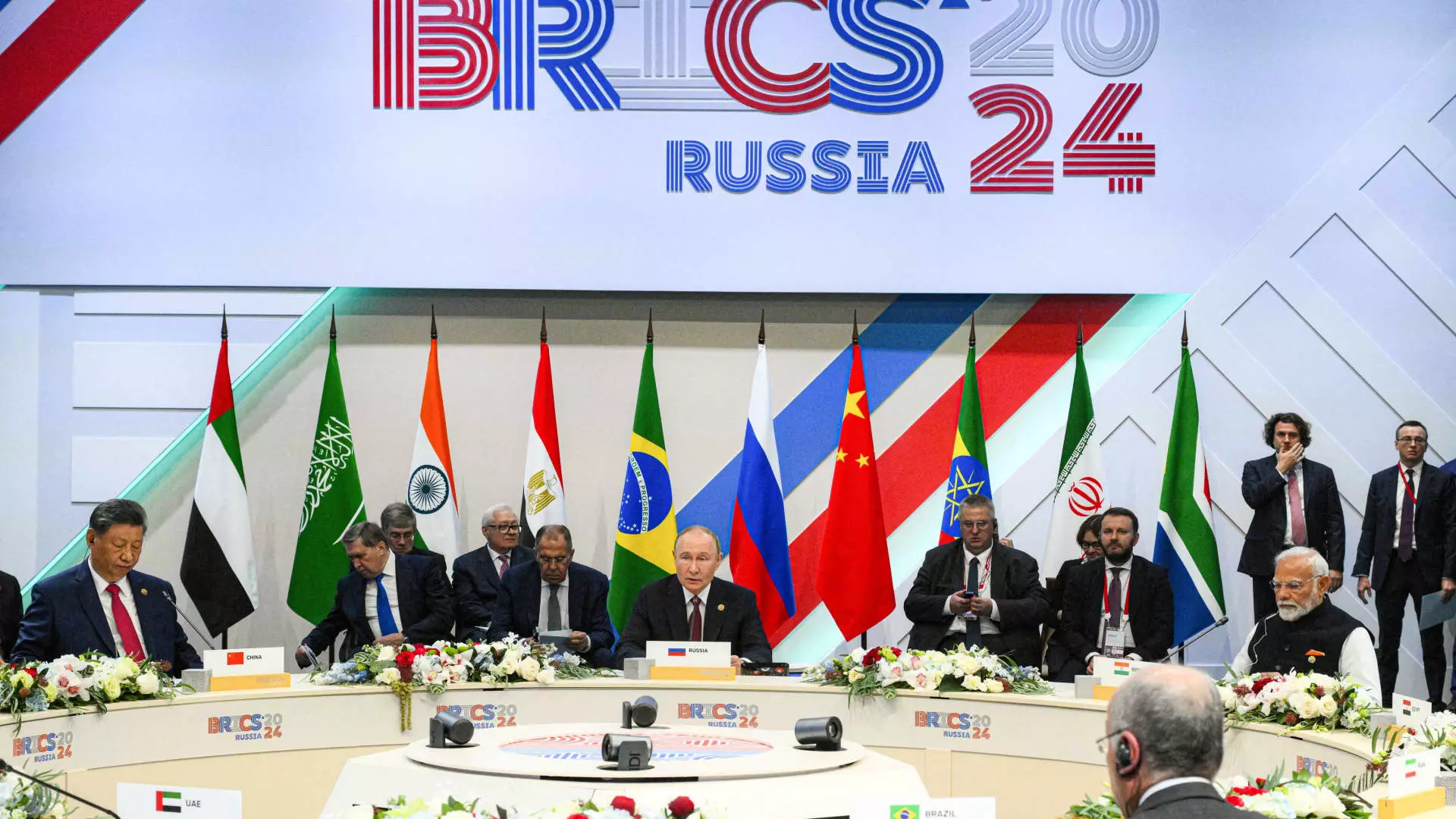In a provocative move, President-elect Donald Trump issued a stern warning on social media, threatening 100% tariffs against a coalition of nine nations, primarily targeting members of the BRIC alliance. This group, which includes Brazil, Russia, India, China, and South Africa, along with other nations such as Egypt, Iran, and the United Arab Emirates, has increasingly voiced discontent over the preponderance of the U.S. dollar in global trade and finance. Trump’s aggressive stance underscores a potential shift in international relations as developing nations explore alternative economic frameworks that do not center around the dollar.
The U.S. dollar has long stood as the dominant currency in global affairs, amounting to approximately 58% of foreign exchange reserves, according to the International Monetary Fund (IMF). Despite this powerful position, the advent of the BRIC nations and their growing economic clout has sparked discussions around “de-dollarization,” which refers to the shift away from dollar-based transactions towards alternative currencies. This growing coalition reflects a rising sentiment among member countries that they seek greater economic autonomy and resilience against perceived American hegemony.
The dollar’s supremacy in global trade transactions has remained unchallenged until now, yet there are signs of a shifting landscape. Countries within the BRIC alliance have expressed frustration with America’s economic policies, which they believe are skewed in favor of U.S. interests. Russian President Vladimir Putin has been vocal about this issue, accusing the United States of “weaponizing” the dollar, which he argues complicates international trade and penalizes countries that do not align with American policies. His assertion that nations are searching for alternatives to the dollar reveals a broader discontent with U.S. dominance.
Furthermore, research suggests that the threat posed to the dollar by BRICS initiatives may be overestimated, at least in the short to medium term. Economists from the Atlantic Council assert that while the dollar currently enjoys stability, the moves towards a parallel system of currency trading by BRIC countries indicates a tangible desire for diversification from reliance on the dollar. However, the transition to an alternative currency system is fraught with challenges, not least of which is establishing sufficient confidence and stability in these emerging currencies.
Trump’s Economic Brinkmanship and Its Implications
Trump’s threatening rhetoric against the BRIC nations—suggesting they would face severe tariffs if they attempted to circumvent the dollar—illustrates a familiar pattern of his economic strategy: leveraging trade policy to assert American supremacy. His earlier threats of tariffs against Mexico, Canada, and China serve as precedents in this ongoing economic brinkmanship. The implication is simple but profound: the U.S. is willing to use its market power as a tool of foreign policy, underlining its economic hegemony but simultaneously risking retaliatory measures from those nations.
The potential for retaliatory tariffs poses significant risks not only to bilateral relations but also to global economic stability. The interconnectedness of global markets means that an escalation of trade tensions can have far-reaching repercussions, affecting supply chains and economic growth on both sides. With Canada and Mexico representing vital trade partners, any disruption could yield more extensive consequences than anticipated, impacting employment and economic health domestically.
As global economics continue to evolve, the tensions surrounding the U.S. dollar and the BRIC nations’ ambitions will likely remain a focal point of concern for economists and policymakers alike. While Trump is confident in the dollar’s unassailable position in global commerce, the sentiment among BRIC nations signals a broader discontent with a unipolar financial system that favors the U.S. It raises pivotal questions about the future of international trade, currency dynamics, and the nature of economic alliances in an increasingly multipolar world.
As markets brace for potential fallout from these tariff threats, it remains critical for all participating nations to engage in diplomatic dialogue to prevent an all-out trade war. Strategic negotiations could pave the way for a more balanced economic framework that allows for cooperation rather than confrontation, ensuring that the pursuit of national interests does not lead to overwhelming global consequences. The nuances of these diplomatic negotiations will be essential in shaping the future landscape of international trade and economic collaboration.

